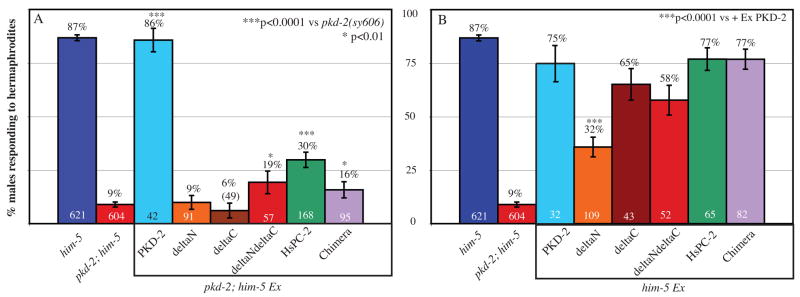Figure 3. PKD-2 cytosolic domains regulate protein function in vivo.
A) Transgenic expression of certain deletion and chimeric constructs significantly restores mutant male mating response behavior. Wild-type males (him-5(e1490)V) respond to hermaphrodite contact 87% (n=621) of the time while pkd-2 mutant (pkd-2 (sy606)IV; him-5(e1490)V) adult males respond 9% (n=604) of the time. Transgenic pkd-2 mutants expressing PKD-2::GFP exhibit normal mating response behavior (86% n=42, p<0.0001 vs. pkd-2 mutant). Expression of the ΔN::GFP (9% n=91), or ΔC::GFP (6% n=49) constructs fails to rescue male mating response relative to their controls. Expression of the ΔNΔC::GFP construct significantly rescues male response behavior (19% n=57, p=0.0102 vs. pkd-2 mutant). TRPP2/PC-2 significantly rescues male mating response in transgenic mutant worms (PC-2::GFP, 30% n=168, p<0.0001 vs. pkd-2 mutant). Transgenic expression of a chimeric TRPP2/PKD-2 protein (HsNCeTMHsC::GFP, 16% n=95, p=0.0320 vs. pkd-2 mutant) also weakly but significantly restores response in transgenic mutant worms.
B) Transgenic expression of some deletion constructs interferes with the function of endogenous protein. Wild-type worms expressing PKD-2::GFP respond to hermaphrodites normally (75% (32)), as do transgenic worms expressing ΔC::GFP (65% n=43),ΔNΔC::GFP (58%, n=52), PC-2::GFP (77%, n=65), and the chimera (77%, n=82). Transgenic expression of ΔN::GFP (32%, n=109, p<0.0001 vs. pkd-2 mutant) significantly disrupts the response behavior of wild-type worms.

